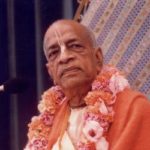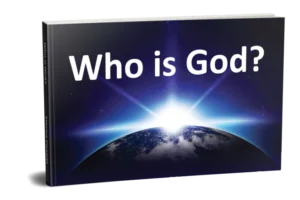On Necessity
FOOD FOR THOUGHT, 10 Jun 2024
A.C. Bhaktivedanta Swami Prabhupada – TRANSCEND Media Service
Statement by a disciple during morning walk in Honolulu, 1976:
“Atheists say that God is created out of a necessity: people have a necessity to have a father image, so they create religion. Humans need a father image; so, they create the idea of God. They say that because people are feeling this necessity, it is a crutch.”
Reply: Why the feeling of necessity is actually a symptom of advanced life.
“Necessity means there is. Otherwise, why necessity? When you feel hungry, the necessity of food, food is there. The necessity of light, the sun is there. The feeling of necessity is the difference between the intelligent and the dull. The dull have no necessity but the intelligent have necessity. First of all, we have to understand that one who has no necessity, he’s in the lowest status. One who has got necessity, he is in higher status.
“Then higher, higher, higher, higher – where’s the highest status? When you necessitate God, Krishna. That necessity that without Govinda I’m feeling everything vacant. That is necessity. That makes it finer.
“If somebody whom you love very much dies, you think: ‘I don’t want anything. World is vacant.’ I’ve no necessity but Krishna. This is also necessity. So, we have to see first of all necessity, then quality of necessity.
A Vaishnava says that, ‘I have no more necessity.’ But s/he has no more necessity of these false necessities of material world.”
_________________________________________________
 Abhay Charanaravinda Bhaktivedanta Swami Prabhupada (1 Sep 1896 – 14 Nov 1977) was a Gaudiya Vaishnavism spiritual teacher (guru) and the founder Acharya of the International Society for Krishna Consciousness (ISKCON), commonly known as the “Hare Krishna Movement”. In 1959 he took a vow of renunciation (sannyasa) and started writing commentaries on Vaishnava scriptures. In his later years, as a traveling Vaishnava monk, he became an influential communicator of Gaudiya Vaishnava theology to India and specifically to the West through his leadership of ISKCON, founded in 1966, when he emerged as a major figure of the Western counterculture, initiating thousands of youngsters around the world. He received criticism from anti-cult groups, as well as a favorable welcome from religious scholars such as J. Stillson Judah, Harvey Cox, Larry Shinn and Thomas Hopkins, who praised Srila Prabhupada’s translations and defended the group against distorted media images and misinterpretations. He has been described as a charismatic leader, in the sense used by sociologist Max Weber, as he was successful in acquiring followers in all continents. After his death in 1977, ISKCON, the society he founded continued to grow. In February 2014, ISKCON’s News Agency reported to have reached a milestone of distributing over half a billion books authored by Bhaktivedanta Swami Prabhupada, since 1965.
Abhay Charanaravinda Bhaktivedanta Swami Prabhupada (1 Sep 1896 – 14 Nov 1977) was a Gaudiya Vaishnavism spiritual teacher (guru) and the founder Acharya of the International Society for Krishna Consciousness (ISKCON), commonly known as the “Hare Krishna Movement”. In 1959 he took a vow of renunciation (sannyasa) and started writing commentaries on Vaishnava scriptures. In his later years, as a traveling Vaishnava monk, he became an influential communicator of Gaudiya Vaishnava theology to India and specifically to the West through his leadership of ISKCON, founded in 1966, when he emerged as a major figure of the Western counterculture, initiating thousands of youngsters around the world. He received criticism from anti-cult groups, as well as a favorable welcome from religious scholars such as J. Stillson Judah, Harvey Cox, Larry Shinn and Thomas Hopkins, who praised Srila Prabhupada’s translations and defended the group against distorted media images and misinterpretations. He has been described as a charismatic leader, in the sense used by sociologist Max Weber, as he was successful in acquiring followers in all continents. After his death in 1977, ISKCON, the society he founded continued to grow. In February 2014, ISKCON’s News Agency reported to have reached a milestone of distributing over half a billion books authored by Bhaktivedanta Swami Prabhupada, since 1965.
Go to Original – srilaprabhupadalila.org
Tags: God, Human Needs, Philosophy, Religion, Spirituality
DISCLAIMER: The statements, views and opinions expressed in pieces republished here are solely those of the authors and do not necessarily represent those of TMS. In accordance with title 17 U.S.C. section 107, this material is distributed without profit to those who have expressed a prior interest in receiving the included information for research and educational purposes. TMS has no affiliation whatsoever with the originator of this article nor is TMS endorsed or sponsored by the originator. “GO TO ORIGINAL” links are provided as a convenience to our readers and allow for verification of authenticity. However, as originating pages are often updated by their originating host sites, the versions posted may not match the versions our readers view when clicking the “GO TO ORIGINAL” links. This site contains copyrighted material the use of which has not always been specifically authorized by the copyright owner. We are making such material available in our efforts to advance understanding of environmental, political, human rights, economic, democracy, scientific, and social justice issues, etc. We believe this constitutes a ‘fair use’ of any such copyrighted material as provided for in section 107 of the US Copyright Law. In accordance with Title 17 U.S.C. Section 107, the material on this site is distributed without profit to those who have expressed a prior interest in receiving the included information for research and educational purposes. For more information go to: http://www.law.cornell.edu/uscode/17/107.shtml. If you wish to use copyrighted material from this site for purposes of your own that go beyond ‘fair use’, you must obtain permission from the copyright owner.
Join the discussion!
We welcome debate and dissent, but personal — ad hominem — attacks (on authors, other users or any individual), abuse and defamatory language will not be tolerated. Nor will we tolerate attempts to deliberately disrupt discussions. We aim to maintain an inviting space to focus on intelligent interactions and debates.
